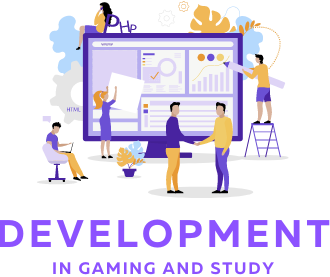Introduction: Online games have transformed from simple pastimes to global cultural phenomena, shaping entertainment, social interactions, and even economies. With the rapid advancement of technology, online gaming has evolved into immersive experiences that transcend boundaries, connecting millions of players worldwide. This article delves into the evolution, significance, and impact of online games, exploring their journey from basic text-based adventures to sprawling virtual worlds.
The Emergence of Online Gaming: The 슬롯머신사이트 concept of online gaming emerged in the late 20th century with primitive text-based adventures and simple multiplayer games. These early forms laid the groundwork for what would become a multi-billion-dollar industry. As internet connectivity improved and technology advanced, online games evolved, incorporating graphics, sound, and interactivity, captivating a growing audience.
Massively Multiplayer Online Games (MMOs): One of the defining milestones in online gaming was the advent of Massively Multiplayer Online Games (MMOs). Titles like “World of Warcraft,” “EverQuest,” and “Final Fantasy XIV” introduced vast virtual worlds where players could interact, cooperate, and compete on an unprecedented scale. MMOs became not just games but entire communities, fostering friendships, rivalries, and shared experiences.
Social Dynamics and Community Building: Online games serve as social platforms where players from diverse backgrounds come together, transcending geographical and cultural barriers. Through guilds, clans, and in-game events, players forge lasting connections, collaborate on challenges, and share stories. These virtual communities provide a sense of belonging and camaraderie, enriching the gaming experience beyond mere gameplay.
Economic Impact and Industry Growth: The economic impact of online gaming cannot be overstated. The industry generates billions in revenue annually, fueled by subscription fees, in-game purchases, and advertising. Moreover, online gaming has spawned entire ecosystems, including esports, streaming platforms, and merchandise markets. Professional gamers, content creators, and developers have turned their passion into lucrative careers, further fueling the industry’s growth.
Cultural Influence and Cross-Platform Integration: Online games have permeated popular culture, influencing music, fashion, and even language. Memes, catchphrases, and references from popular titles have become ubiquitous in mainstream media. Furthermore, online gaming has embraced cross-platform integration, allowing players on different devices to connect and play together seamlessly. This inclusivity enhances accessibility and broadens the player base.
Challenges and Controversies: Despite their widespread popularity, online games face various challenges and controversies. Issues such as addiction, toxicity, and privacy concerns have garnered attention from policymakers and the public. Additionally, the monetization practices of some games, including loot boxes and microtransactions, have sparked debates about their ethical implications and impact on player experience.
Conclusion: Online games have evolved from humble beginnings to become a dominant force in global entertainment and culture. Their immersive worlds, social dynamics, and economic significance have reshaped how people play, connect, and interact. As technology continues to advance, online gaming will likely evolve further, shaping the future of entertainment and digital communities for generations to come.
